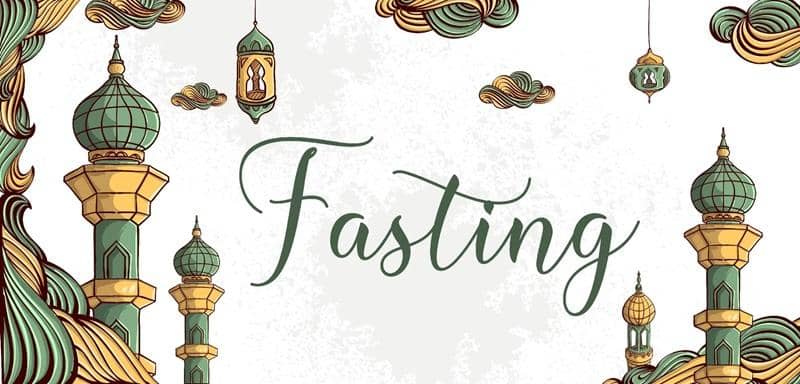Ramadan Fasting Rules According to Islamic Sharia
Fasting during Ramadan is a fundamental act of worship for Muslims worldwide. However, not everyone is required to fast due to valid exemptions outlined in Islamic teachings. If you or someone you know is unable to fast, this guide will help clarify who is excused, what they must do instead, and how fidya and kaffarah work.
Who Is Exempt from Fasting in Ramadan?
Islam recognizes that fasting may not be feasible for certain individuals. The following groups are permitted to skip fasting and compensate in other ways:
Aged and Elderly Individuals
Older Muslims who suffer from weakness or chronic illnesses that make fasting harmful to their health are excused. For example, an elderly man with severe arthritis who struggles to move without assistance would not be required to fast. Instead, he must offer fidya, a form of compensation, by feeding a poor person for each missed day of fasting.
The Sick and Medically Unfit
Muslims who have illnesses that prevent them from fasting are also exempt. This includes individuals with diabetes, heart disease, or kidney failure, where fasting could worsen their condition. A person undergoing chemotherapy, for example, cannot be expected to fast as it may compromise their immune system. A doctor’s guidance is essential in such cases. If their condition is temporary, they must make up for missed fasts later. If it is chronic, they must pay fidya.
Pregnant and Nursing Women
Expecting and breastfeeding mothers may not fast if they fear harm for themselves or their baby. A pregnant woman experiencing severe nausea and dehydration is not obligated to fast. Similarly, a nursing mother whose milk supply may decrease due to fasting can postpone it. These women can either make up for the fasts later or pay fidya, depending on their situation.
Menstruating and Postpartum Women
Women on their menstrual cycle or experiencing postnatal bleeding are strictly forbidden from fasting. They are required to make up for the missed fasts once they are able.
Travelers (Musafir)
Muslims who embark on long journeys can skip fasting if it causes hardship. A businessperson traveling internationally or a student moving to another city for exams can delay fasting and make up for it later.
People Engaged in Hard Labor
Those whose profession demands extreme physical exertion, such as construction workers or farmers working under the scorching sun, may be permitted to break their fast if fasting causes unbearable hardship. However, they must make up for the fasts on days when they are not working under such conditions.
Children Below the Age of Puberty
Fasting is only obligatory for Muslims who have reached puberty. A 10-year-old child, for example, is encouraged to fast but is not obligated until they become mature.
Fidya: Compensation for Those Who Cannot Fast
For those who are permanently unable to fast due to age or chronic illness, Islam prescribes fidya–feeding a needy person for each missed fast. The exact amount varies by region, as it is based on the average cost of a daily meal. At Our Islamic Charity, we calculate this based on local food prices to ensure accuracy and fairness.
Here you can learn more about the fidya(ransom) or pay fidya with cryptocurrency.
Kaffarah: Atonement for Breaking the Fast Intentionally
If a person deliberately breaks their fast without a valid excuse, they must offer kaffarah, a serious form of expiation. This requires either fasting for 60 consecutive days or feeding 60 needy people. For instance, if a Muslim intentionally eats during the day in Ramadan without a valid reason, they must either undertake this rigorous fasting or provide meals for the poor as compensation. It is always best to fast and seek Allah’s forgiveness, but kaffarah ensures that the obligation is not ignored.
We have received this question many times: Can I skip Ramadan fasting and pay the atonement (kaffarah)? A Muslim cannot simply choose not to fast in Ramadan and pay kaffarah instead. As Muslims, we do not recommend this and if you can, it is better to fast, but in the end the short answer is: Yes.
Here you can learn more about the kaffarah or pay kaffarah with cryptocurrency.
The Importance of Fasting and Seeking Allah’s Mercy
Fasting is a great act of devotion that strengthens faith and self-discipline. For those who can fast, it remains an obligation that should not be taken lightly. However, for those who genuinely cannot, Islam offers compassionate alternatives through fidya and kaffarah. By fulfilling these obligations, we ensure that the spirit of Ramadan is upheld, and the needy in our communities benefit.
If you or someone you know needs assistance in paying fidya or kaffarah, Our Islamic Charity facilitates donations that go directly towards feeding those in need. May Allah accept our efforts and grant us mercy in this blessed month.



